#Homo heidelbergensis
Explore tagged Tumblr posts
Text




Some hominids-in-progress I've had on lately: a Neanderthal shifting her weight in preparation to throw a spear, some improvements I made to the meshes and textures for my A. sediba and P. boisei skins, and skins I still have to texture for H. naledi and H. heidelbergensis Digital painting (Photopea, first image), Digital sculpture (Blender, last three images), 2024
#works in progress#Hominids#Human evolution#Homo neanderthalensis#Paranthropus boisei#Australopithecus sediba#Homo naledi#Homo heidelbergensis#digital painting#Photopea#digital sculpture#Blender#2d rendering#3d rendering#facial anatomy#comparative anatomy#life restoration of fossil skulls#hominid reconstructions#postcranial reconstruction#craniofacial reconstruction#Christopher Maida Artwork
54 notes
·
View notes
Text

Skull of Homo heidelbergensis (replica), 600,000-200,000 years ago.
Museum of Archaeology, Durham University
#skull#homo heidelbergensis#evolution#prehistory#ancient cultures#replica#skeleton#anthropology#archaeology
72 notes
·
View notes
Text

Kabwe Woman
The subject of this acrylic paintingis based on a nearly 300,000-year-old hominin skull found at the site of Broken Hill near the Zambian town of Kabwe. Paleoanthropologists have traditionally assigned this specimen to the species Homo heidelbergensis, the species believed to be the common ancestor of modern humans, Neanderthals, and Denisovans, but a paper in 2021 classified it as a late-surviving member of Homo bodoensis, the species immediately ancestral to modern humans after we split from the Neanderthal and Denisovan lineage. An old nickname for the Kabwe specimen is “Rhodesian Man” (since Zambia was under the thumb of British colonial rule as Northern Rhodesia at the time of the skull’s discovery), but what if it was a woman’s skull instead?
#homo heidelbergensis#homo bodoensis#hominin#paleoanthropology#african#black woman#woman of color#dark skin#bipoc#paleoart#traditional art#painting#art
8 notes
·
View notes
Text

Cultures de l'Edat de Glaç a Europa (120.000 a 15.000 aP).
#mapa#cartografia#Edat de Glaç#Edat de Gel#cultura#Europa#Homo heidelbergensis#Homo neanderthalensis#Homo sapiens#Aurinyacià#Gravetià#Magdalenià#Primera Humanitat
2 notes
·
View notes
Photo
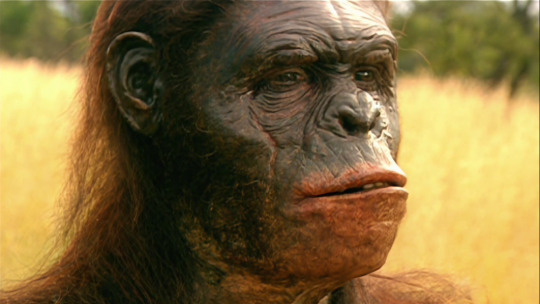



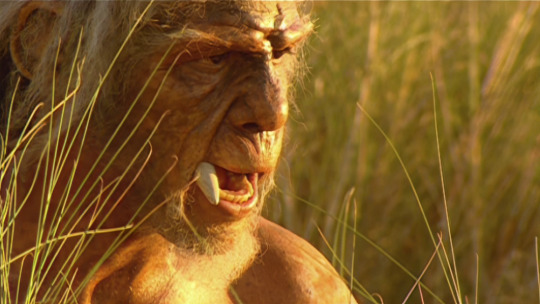
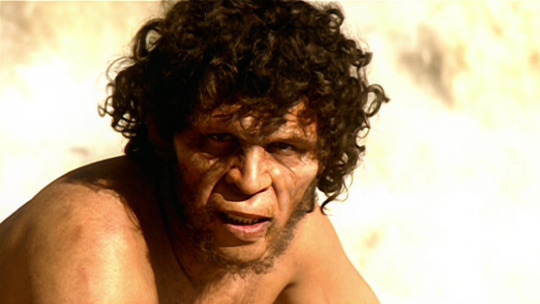
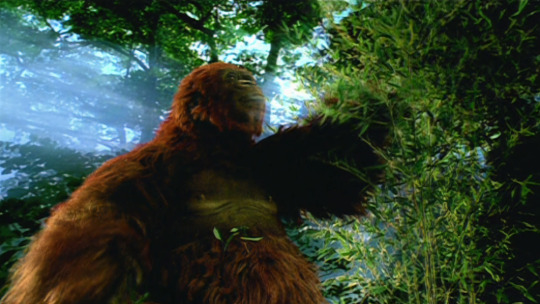



Meet your relatives: The hominids featured in Walking With Cavemen.
#walking with cavemen#walking with#human#australopithecus#paranthropus#homo rudolfensis#homo habilis#homo ergaster#homo erectus#gigantopithecus#homo heidelbergensis#neanderthal#homo sapiens#mine#the last one is lower quality because it was one of the few good forward-facing shots with modern humans in the last episode#and it's from the ending so it makes for a fitting note to end on#q
38 notes
·
View notes
Text

Homo Antecessor: the name of this species is highly debated amongst the experts, with many considering the remains to be those of Homo heidelbergensis which has theorised origins which have been pushed back to the same timeframe as this species.
#history#historyfiles#archaeology#homo antecessor#homo heidelbergensis#homo#humans#early humans#prehistory#prehistoric#stone age#palaeolithic#species#evolution
2 notes
·
View notes
Text
Un estudio innovador ha descubierto las huellas más antiguas de los primeros humanos en Alemania, donde una vez deambuló una familia de humanos primitivos. Acompañadas de huellas de animales, incluida la primera evidencia de elefantes en la región, estas huellas y otras evidencias encontradas ofrecen información increíble sobre la vida antigua.
2 notes
·
View notes
Text
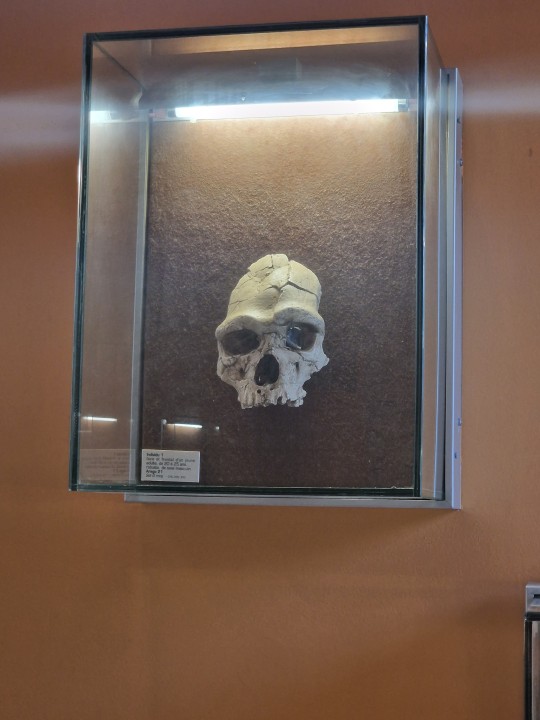
L'homme de Tautavel 💀
Petit tour au musée de Tautavel aujourd'hui.
Très sympa, beaucoup d'outils en pierre. D'ailleurs heureusement qu'ils précisent quel était leur usage car à part certains silex caractéristiques, je n'aurais pas vraiment su les différencier de pierres classiques.
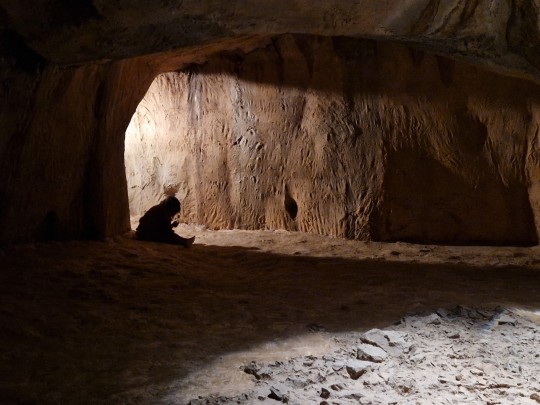
Reconstitution de la grotte. On ne voit pas bien mais le sol est jonché d'ossements d'animaux car ils mangeaient absolument tout : muscle, cervelle, moelle ... Et ce qui me surprend c'est qu'autant ils s'habillaient avec des peaux ... mais ils marchaient pieds nu là dedans ? Ça me surprend qu'ils n'évacuaient pas les os ... Ça devait bien faire mal aux pieds ...
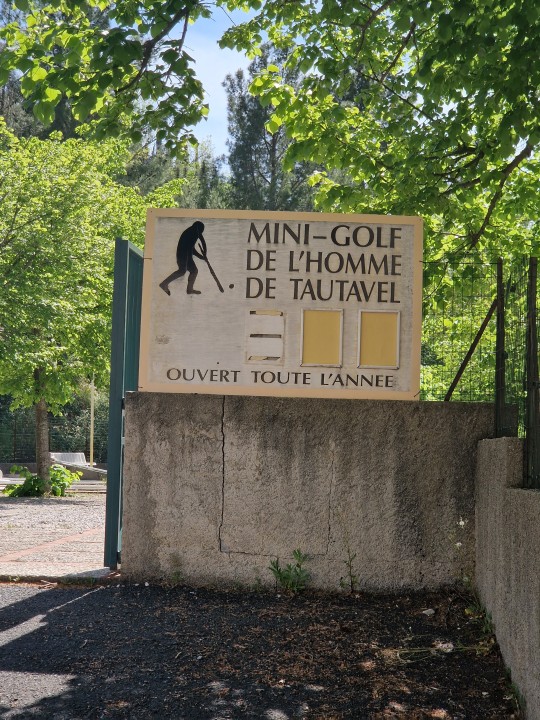
Même qu'entre 2 parties de chasse, l'homme de Tautavel allait faire du mini-golf ! 😂
#Tautavel#homme de Tautavel#homme préhistorique#musée#pyrénées orientales#homo heidelbergensis#Tautavel man#homo tautavelengis#caveman#museum
2 notes
·
View notes
Text
Me when... Me when Benjamina 😭
"most beloved"
"What's more human than the choice to love someone ? "


(quotes from a documentary on prehistoric humans in Europe)
#Benjamina#Homo heidelbergensis#Not me almost crying over a little girl from hundreds of thousands of years ago#prehistoric
1 note
·
View note
Text
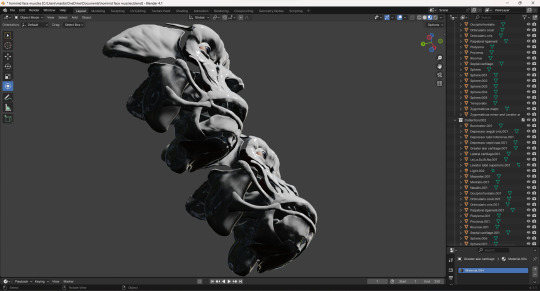


Here's some hominid soft facial anatomy : )
The model on the right of frame, representing Australopithecus sediba, has been in sporadic progress for over a year now across a few programs, and I was able to create the model on the left of frame by conforming all the A. sediba elements to the Kabwe cranium (belonging to Homo heidelbergensis *or* H. bodoensis by some classifications). That latter process took place entirely in Blender over only a couple days, so I'm pretty happy with this method. While the skulls themselves aren't visible in these screenshots, they are part of the Blender file and were downloaded directly from MorphoSource, which was pretty helpful. Digital sculpture (SculptFab, SculptGL, 3D Builder, Blender), 2023-24
#Australopithecus sediba#Kabwe cranium#Homo heidelbergensis#Homo bodoensis#Blender#hominid reconstruction#facial anatomy#anatomical model#digital sculpture#3d rendering#musculature#tendons#cartilage#eyeballs#human evolution#comparative anatomy#Christopher Maida Artwork
15 notes
·
View notes
Text
Homo Sapiensler Nasıl Hayatta Kaldı?
Homo Sapiensler Nasıl Hayatta Kaldı? Homo sapiensler olarak bu gezegende yaşayan tek insan türü değildik. Bir zamanlar gezegenimizde en az 7 başka insan türüyle daha beraberdik. Peki ama bugüne kadar nasıl sadece biz hayatta kaldık? Bilim insanlarına göre belki de en yumuşak karnımız, yani başka insanlara, sosyalleşmeye bağımlı olmak, şefkat duymak ve empati kurmak bize avantaj saglamış…
#Denisovalı#denisovalılar#Denisovan#heidelbergensis#homo#homo erectus#Homo floresiensis#Homo heidelbergensis#Homo luzonensis#Homo Naledi#homo sapiens#Homo Sapiensler#Homo Sapiensler Nasıl Hayatta Kaldı#Neandertal#Neandertaller
0 notes
Photo

Alas I am not an actual Neanderthal, but Homo heidelbergensis is fucking cool too.


OK, I’m a Neanderthal, according to this quiz (created by a student at Appalachian State University)
The few. The Proud. The Neanderthals:


7K notes
·
View notes
Text
Kabwe 1

This is Kabwe 1, a ~300,000 year old cranium of a human ancestor excavated in Zambia in 1921. Its species assignment is still kinda controversial, but I'm going with Homo heidelbergensis.
I love these big brow ridges - would not want to get headbutted by this dude. -- Me, April 2022
1 note
·
View note
Photo



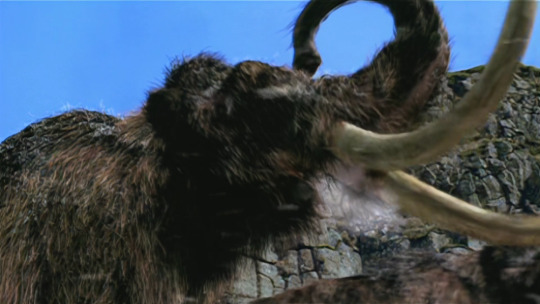






20th anniversary of the fourth and final episode of Walking With Cavemen, “The Survivors.” The series ended April 23rd, 2003.
#walking with cavemen#walking with#human#homo sapiens#homo heidelbergensis#neanderthal#megaloceros#mammoth#mine#the last two are of noticeably lower quality but i had to include both because i love the original ending so much#q
1 note
·
View note
Text
Jeroglíficos hoy Emojis. Comunicación ahora incomunicación
Jeroglíficos hoy Emojis. Comunicación ahora incomunicación #aperturaintelectual #vmrfaintelectual @victormanrf @Victor M. Reyes Ferriz @vicmanrf @victormrferriz Víctor Manuel Reyes Ferriz
06 DE AGOSTO DE 2024 Jeroglíficos hoy Emojis.Comunicación ahora incomunicación POR: VÍCTOR MANUEL REYES FERRIZ La comunicación es, probablemente, la primera actividad que gestionó el ser humano, ya sea por necesidad o por querer eliminar la ansiedad; empero, es el invento más grande de la historia según mi punto de vista ya que con ello hemos logrado avanzar al punto en que nos encontramos hoy,…
#AperturaIntelectual#vmrfaintelectual#“Pirámide de William Glasser”#Cine#Comunicación#Descifrar jeroglíficos#Dialectos#Emojis#filme llamado ”La llegada del tren” de los hermanos Lumiere#Guillermo Marconi#heidelbergensis#Homo Sapiens#Idioma Árabe#Idioma Chino#Idioma Farsi#Idioma Hebreo#Idioma Sánscrito#idioma Urdu#Imprenta#Inicio de la escritura#Jeroglíficos#Johannes Gensfleisch zur Laden zum Gutenberg#Lenguas romances#neanderthalensis#Nula capacidad de razonamiento#OCDE#Periódico#Pictogramas#Plataforma Fabricius#Prueba PISA
2 notes
·
View notes
Text

homo heidelbergensis is a transmasc icon. keeping it real since 600.000 BC.
#avotxt#has anybody been to the madrid regional archaeological museum in alcala de henares and taken a picture#of the life sized sculpture of homo heidelbergensis#i can only find pics of him from stock photo sites
2 notes
·
View notes